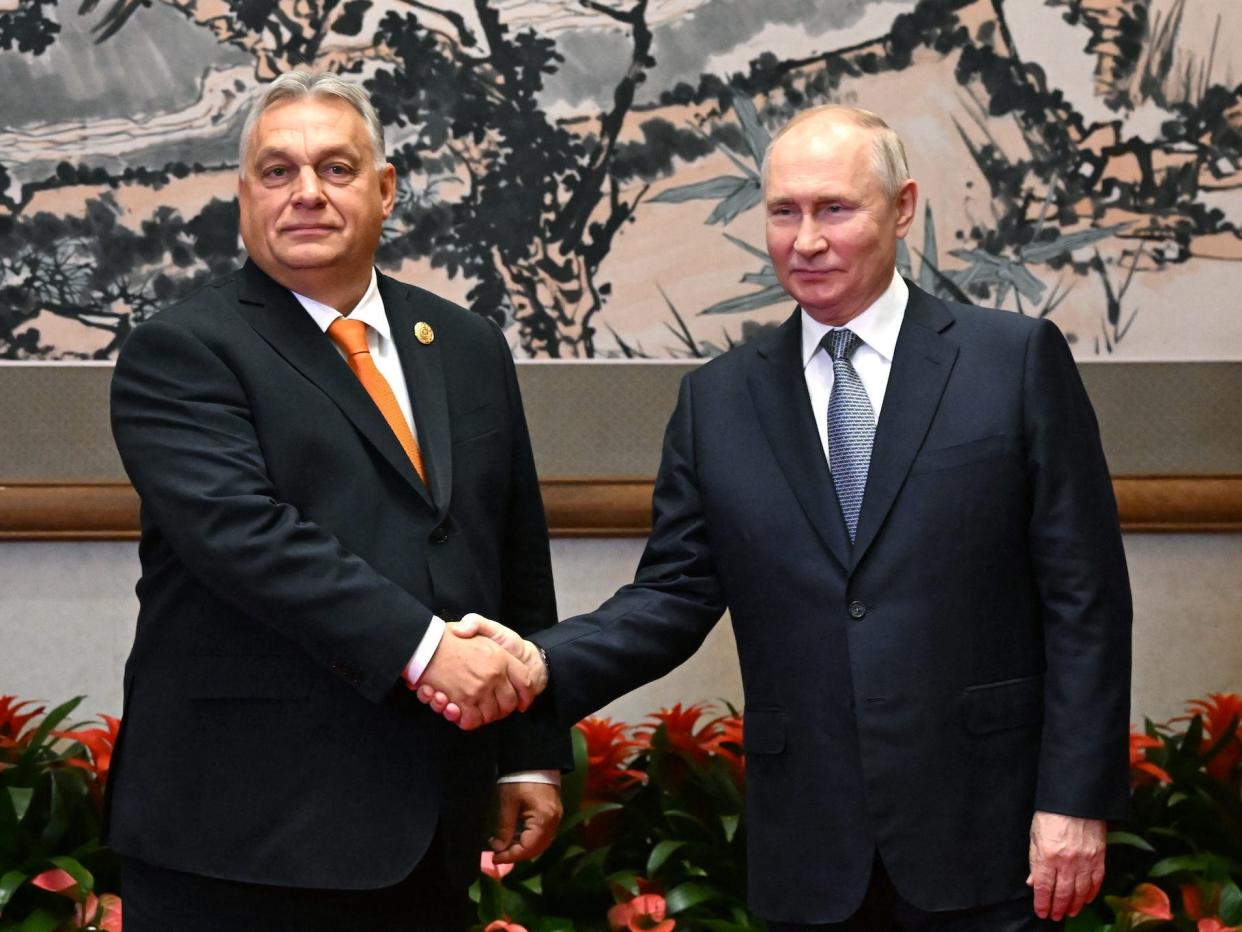Putin's favorite NATO member wants to 'redefine' membership so it doesn't have to help Ukraine

Hungary's prime minister said officials were working to "redefine" his country's NATO membership.
He said the aim was to not have to "take part in NATO actions outside NATO territory."
The change would probably allow Hungary to avoid being involved in NATO assistance to Ukraine.
The NATO member most aligned with Russian President Vladimir Putin wants to alter its membership in the Western military alliance so it can avoid aiding Ukraine's fight against Russia's invasion.
Viktor Orbán, the prime minister of Hungary, told state radio on Friday, "Our lawyers and officers are hard at work to see how Hungary can maintain its NATO membership in a way that it wouldn't have to take part in NATO actions outside NATO territory," according to Bloomberg.
Orbán said military officials and lawyers in the country were trying to find ways to allow Hungary to act differently from other alliance members.
He said allowing Hungary to formally opt out of NATO discussions about expanding its role in the current conflict in Ukraine would result in a new kind of NATO membership.
It would "redefine" Hungary's membership, he said.
Hungary blocks support for Ukraine
Hungary has sought to restrain Western and NATO support for Ukraine throughout Russia's invasion.
It doesn't send weapons to Ukraine, and it spent months blocking billions in European Union funds for the country before eventually allowing it to proceed in February.
In April 2022, two months after the invasion began, Orbán referred to Ukrainian President Volodymyr Zelenskyy as one of his "opponents."
In the recent interview, Orbán said he supported NATO's policy of helping other members if they came under attack but didn't support giving Ukraine —which isn't a member — money and weaponry, as most of the alliance does.
He said doing so could lead to more military involvement in Ukraine, including sending troops.
Orbán also said he didn't agree with the views of some NATO members that Russia might invade countries on the eastern flank of the alliance, instead describing Russia's invasion of Ukraine as a war between "two Slavic countries."
Multiple European countries, including those on NATO's eastern flank that border Russia, have warned that Russia could attack elsewhere, and they need to prepare.
NATO is backing Ukraine
NATO has been a strong supporter of Ukraine throughout the conflict.
Through the alliance, members have pledged more than $700 million in support, in addition to billions in contributions they've made individually.
NATO's secretary-general, Jens Stoltenberg, has proposed that NATO allies coordinate $100 billion for Ukraine over the next five years, but not all members seem convinced by the plan.
Stoltenberg has also said Ukraine will one day become a member of NATO, something that is strongly opposed by Russia.
Read the original article on Business Insider

